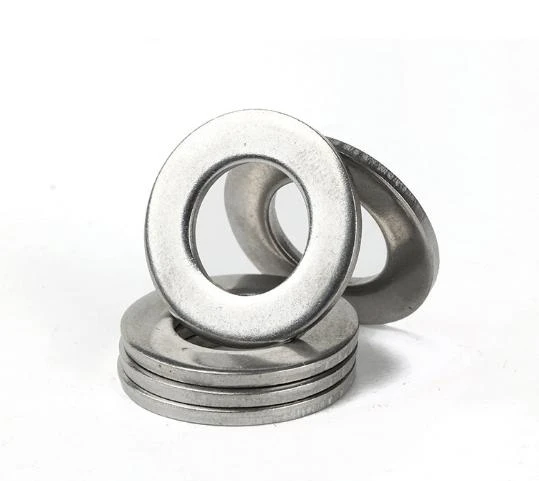

Everything You Should Know About Stud Bolts for Your Projects
Nov . 10, 2024 15:40 Back to list
Everything You Should Know About Stud Bolts for Your Projects
Understanding Stud Bolts All You Need to Know About This Essential Fastener
In the realm of industrial fasteners, stud bolts play an indispensable role in ensuring the strength and integrity of numerous applications. While they may appear as simple components, their design and functionality are fundamental to various engineering projects, whether in construction, automotive, aerospace, or manufacturing. In this article, we will explore what stud bolts are, their applications, and why understanding them is crucial for both professionals and DIY enthusiasts.
What is a Stud Bolt?
A stud bolt is a type of fastener that is characterized by a cylindrical rod with threads on both ends and a smooth middle section. Unlike standard bolts that have a head on one end, stud bolts can be inserted into a threaded hole and secured with nuts on both ends. This unique design allows for a greater range of applications and provides several advantages over traditional bolts.
Stud bolts come in various materials, including steel, stainless steel, and alloys, making them suitable for different environments and purposes. The choice of material often depends on the required strength, corrosion resistance, temperature tolerance, and specific project demands.
Key Applications of Stud Bolts
1. Pressure Vessels and Piping Stud bolts are widely used in pressure vessels and piping systems, particularly in industries like oil and gas. Their ability to withstand high temperatures and pressures makes them ideal for securing flanges and other critical connections.
2. Automotive Industry In automotive applications, stud bolts are used in engine assemblies, suspensions, and chassis connections. Their robustness ensures that vital components remain securely fastened under dynamic conditions.
3. Construction In the construction sector, stud bolts are essential for anchoring structural elements, such as steel beams and columns. Their reliability provides the necessary strength to support buildings, bridges, and other infrastructure.
4. Aerospace The aerospace industry employs stud bolts for securing components in aircraft and spacecraft. Given the extreme conditions present in this field, the demands for precision and reliability are paramount.
5. Marine Applications Stud bolts are also common in marine environments where resistance to corrosion is essential. They help secure various systems on ships and submarines, ensuring long-lasting performance despite harsh conditions.
Advantages of Using Stud Bolts
stud bolt 1-2 all you need to know about this essential

- Versatility Stud bolts can be used in a wide variety of applications, making them an attractive choice for many industries. Their dual-thread design allows for flexibility in assembly and installation.
- Strength and Load Distribution The absence of a head allows for the even distribution of load across the stud. This can be particularly beneficial in high-pressure situations where stability is crucial.
- Ease of Maintenance Stud bolts allow for easy inspection and replacement of nuts and other components without disturbing the entire assembly. This can save time and effort in maintenance tasks.
- Reusability Many stud bolts are designed for multiple uses, which can lead to cost savings in long-term projects where components may need to be removed and reattached.
Best Practices for Installation
Proper installation of stud bolts is essential to ensure their effectiveness and longevity. Here are some best practices to consider
1. Surface Preparation Ensure that surfaces where the stud bolts will be installed are clean and free from debris or corrosion. This helps create a secure connection.
2. Torque Specifications Always adhere to the manufacturer’s torque specifications during installation. Over-tightening can lead to failure, while under-tightening can result in loosening over time.
3. Periodic Inspection Regularly inspect installed stud bolts to check for signs of wear, corrosion, or loosening. Early detection of issues can prevent larger failures.
4. Use of Proper Tools Utilize the right tools for installation and removal. This minimizes the risk of damaging the thread or the stud bolt itself.
Conclusion
Stud bolts are essential components in the mechanical and structural integrity of numerous applications. Understanding their design, applications, and advantages can greatly enhance the quality and safety of engineering projects. Whether you are a seasoned professional or a DIY enthusiast, recognizing the value of stud bolts will empower you to make informed decisions in your fastening needs. As industries continue to evolve, the significance of stud bolts will remain steadfast, proving that sometimes, the simplest solutions are the most effective.
Latest news
-
High-Strength Hot-Dip Galvanized Bolts-Hebei Longze|Corrosion Resistance&High Strength
NewsJul.30,2025
-
Hot Dip Galvanized Bolts-Hebei Longze|Corrosion Resistance&High Strength
NewsJul.30,2025
-
Hot Dip Galvanized Bolts - Hebei Longze | Corrosion Resistance, High Strength
NewsJul.30,2025
-
High-Strength Hot Dip Galvanized Bolts-Hebei Longze|Corrosion Resistance, Grade 8.8
NewsJul.30,2025
-
Hot Dip Galvanized Bolts-Hebei Longze|Corrosion Resistance,High Strength
NewsJul.29,2025
-
High-Strength Hot Dip Galvanized Bolts - Hebei Longze Metal Products Manufacturing Co., Ltd.|corrosion resistance&high strength
NewsJul.29,2025

